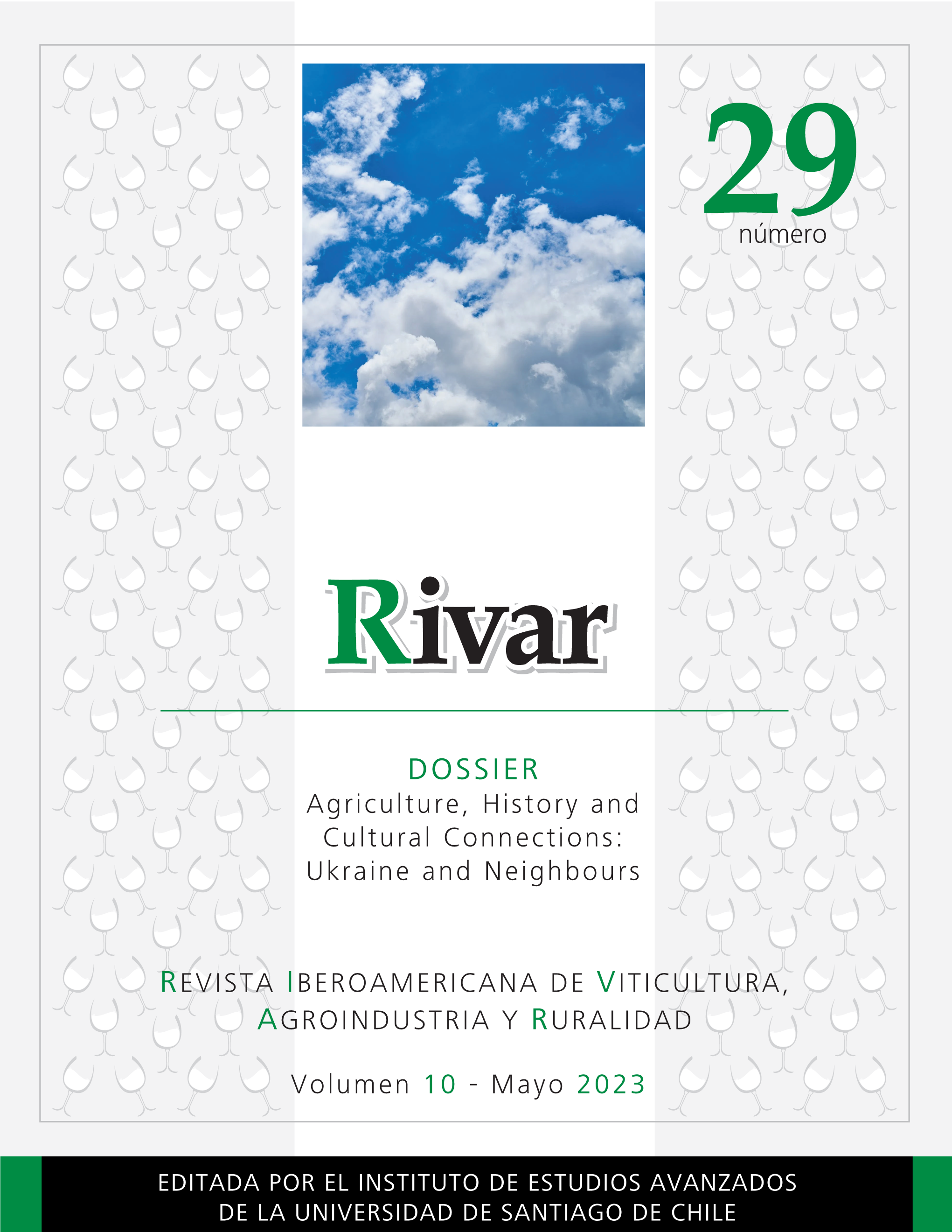Historical Fate of Balkan Ethnic Groups in Kazakhstan: Past and Present
DOI:
https://doi.org/10.35588/rivar.v10i29.5826Keywords:
Balkans, Bulgarians, Greeks, ethnos, deportation, migrationAbstract
Balkan Peninsula Diaspora appeared in Kazakhstan at the end of the XIX century. Firstly, the Bulgarian nationality moved, and then Greeks moved. Among the peoples of the Balkan Peninsula, the fate of the Greeks and Bulgarians is typically common for Kazakhstan. The fact that the Balkans people collided with the land of Central Asia was comprehensively influenced by political, economic, and ideological factors. Adapted to the nature and economy of the new region, the Balkan ethnic groups have retained their identity. Today, the fourth generation of these ethnic groups lives in independent Kazakhstan as a fully functioning Diaspora of Balkan people. Problems of their resettlement and arrangement are one of the topics that have not been studied in history despite being one of the most important in migration and resettlement questions of this territory. In this research work the history of Balkan ethnic groups in Kazakhstan was analyzed on the basis of archival and scientific materials.
Downloads
References
Bazanova, F.N. (1987). Formation and Development of the Population Structure of the Kazakh SSR: National Aspect. Alma-Ata.
Cassidy, F.H. (1994). Encyclopedia of Soviet Greeks. Moscow, Progress-Culture.
Danilov, V.P. (2003). Stalinism and Soviet Society. Problems of History of Mass Political Repressions in the USSR. Krasnodar, Cron.
Gladysheva, E.N. (2011). Features of Formation of the Population and the Main Problems of Use of Labor Resources of Kazakhstan. Alma-Ata, Nauka.
Juha, I.G. (2013). Greek Operation. History of Repression Against the Greeks in the USSR. Saint-Petersberg, Aleteia.
Martinkovic, M. (2021). “Development of the Party System and the Character of Coalition Governments in Slovakia in the Years 2006-2016.” Tomsk State University Journal of Philosophy Sociology and Political Science 60: 194-205. DOI https://doi.org/10.17223/1998863x/60/17
____. (2005). “The Idea of Slavic Solidarity in the Interpretations of the Representatives of the ‘New School’.” Filozofia 60(10): 804-818.
Pozharskiy, A.S.; Aubakirova, K.P.; Gritsenko, D.A.; Tlevlesov, N.I.; Karimov, N.Z.; Galiakparov, N.N. and Ryabushkina, N.A. (2020). “Genotyping and Morphometric Analysis of Kazakhstani Grapevine Cultivars Versus Asian and European Cultivars.” Genetics and Molecular Research 19(1): gmr18482. DOI https://doi.org/10.4238/gmr18482.
Rybalchenko, R.K. (1977). The Passport System in the USSR. Kyiv, Vischa shkola.
Suleimenov, A. (2014). The Greek Diaspora of Kazakhstan. In https://e-history.kz/ru/contents/view/4963 (accessed 20/06/2022).
Voutira, E. (2006). “Post-Soviet Diaspora Politics: The Case of the Soviet Greeks.” Journal of Modern Greek Studies 24(2): 379-414. DOI https://doi.org/10.1353/mgs.2006.0029









